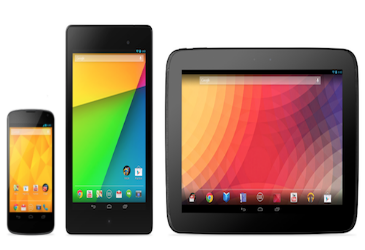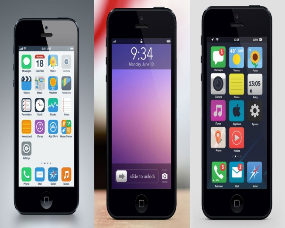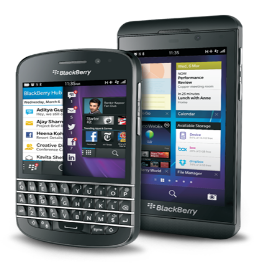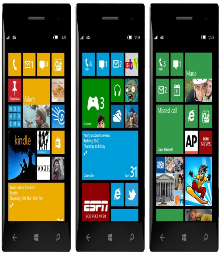A smart-phone programmer can choose other platforms also but developing for Android is lot easier and worthy. As a developer, anyone can develop apps for Android market. Point is:
- No certification is required.
- Software Development Kit (SDK) is free of cost and is smart enough to update itself with few clicks.
- Development environment can be Windows, Linux or Mac OS.
- Android market is there for distribution of your apps.
- No third party approval is required for distribution of apps in market.
- You need a working internet connection and urge to learn, that’s it!!!
- Start learning from anywhere and wherever, doesn’t matter.
Any other mobile SDK can also be used for learning and earning, why to choose android? Here are some of the unique features which make android more appealing and they are:
- The apps downloaded from market and the ones with which the device was shipped are given equal importance.
- Windows can be created into your applications from your own phone’s home screen by using live wallpapers, widgets, etc.
- Different apps can share data.
- With the help of background services you let your device work silently .It responds when the threshold event occurs like when pre-determined location arrives, device notifies the user.
- Google Maps is the biggest hit in this scenario.
- Open source platform with lots of samples which makes learning curve small.
Let’s find out few differences between Android and other renowned platforms namely, ios, Blackberry and Windows.
1.5.I. Android versus IOS
Both Android and iOS are leading players in the market of smartphones. Let’s pen down few differences between them.
- Android is the most extensively used smartphone platform in the world and it is used by different device manufacturers like LG, Samsung, HTC , etc.
iOS is used only on Apple devices like iPad, iTouch, Apple TV etc.
- Android allows the use of widgets, which display the automatic updated information such as weather, e-mail.
iOS has a row of apps on the home screen.
- Varieties of Android devices are available with differing sizes and hardware capabilities. User can choose any one of them according to his/her requirement and budget.
iOS is available only on Apple devices and they tend to be expensive.
- Users can chat with non-android devices via GTalk.
iOS does’t provide the native chat application for non-apple users.
- Google chrome is available on Android devices. They can be integrated with IOS devices.
iOS has Safari as web browser which is not available for an Android device.
- Android allows wireless payments with Near field communication, which is possible by Google wallet.
iOS provides a Passbook app, which plays around debit/ card cards, but doesn’t allow wireless mobile payments.
- Android apps can be programmed in C, C++ and JAVA. Anyone can download SDK and start developing for free. Users can download enormous number of apps for free. There is a one time registration fee of $25 for publishing apps on Google Play.
iOS developers need to pay $99 every year for their access to iOS SDK and right to publish on app store.
- Android SDK is available for all platforms: PC, Mac and Linux. It is an open and free platform.
iOS SDK is available for Mac only. It is a closed platform.
- Android device’s battery can easily be replaced.
IOS battery cannot be replaced, hence one has to keep the charger ready to plug-in.
- Android has the second largest app store. Apps need regular update which again differs among different flavors of Android.
iOS has the largest app store. Same update is required for all devices.
As android id tied up with Google’s environment it is the driving force behind most prominent people changing from iPhone to Android.
1.5.2. Android versus Blackberry
Both Android and Blackberry are tough competitors but they serve different requirements. Let’s pen down some differences
- A full touch screen experience can be enjoyed with Android. Different device manufacturers placed their own interface on top of basic android layer for e.g. Samsung has its TouchWiz, Motorola has MotoBlur, etc.
Most Blackberries don’t have touch interface except Storm and Torch when this article was written.
- In case of customization of home screen, Android is a winner in market. It allows multiple home screens.
Blackberry is very poor in customization. There are no widgets.
- Android is a touch based system and hence navigation is handled by swapping, tapping and pressing. They also have home screen, back key, etc., which varies from manufacturer to manufacturer.
Blackberry provides a track pad for navigation. Older Blackberries had trackball for navigation.
- Android is a dedicated player in game apps and other cool to-do-things apps. Except Gmail, most e-mails have to be checked periodically.
Blackberry is dedicated towards a strong communication network. Whenever a e-mail drops in inbox, user is notified.
- Android’s market is huge as compared to Blackberry store.
- Android apps require regular update.
Blackberry is stable.
- Android is a open source platform so it can be changed or hacked easily. This is why regular updates are released so that bugs can be fixed.
Blackberry uses its on server and hence it is much secured. But if server fails, the problem is widespread and it may take days to fix the error.
Blackberries are most suitable for those who are in certain business and need constant communication. Android gives immense user experience.
1.5.3. Android versus Windows
Windows have partnership with Nokia. As we all know now Nokia is empowered by Microsoft and it overtook the Symbian OS and placed itself in market. Let’s pen down certain points about both of them.
- An Android device uses Android Operating System and it is an open source.
Windows phone uses Windows operating system which is a mix of open and closed system.
- Android users are free to choose any app from market and developers don’t target a particular set of end user’s interest. Say, a Google Map can be used by a student or a farmer to know his/her location.
Windows target apps with end user in mind.
- Android device boots itself within few seconds.
Windows phone must be fully booted in 30 seconds, otherwise the set spec shall not be met.
- SD card of an android device is replaceable.
SD card can’t be replaced. With SkyDrive you can have cloud storage.
- Android apps can register themselves and share data or supports inter-process communication.
Window’s phone allows every app to open in a sandbox so that other parts of operating system are left undisturbed. It increases security.
- Android’s apps store is very large.
They have the smallest but fastest growing apps store.
Windows phone can be used if security is the main concern and Android can be used if you really want your phone to act smart enough like a Smartphone should do.
Table. Different smartphones
Android
| iOS | Blackberry | Windows |
|
|
|
|




